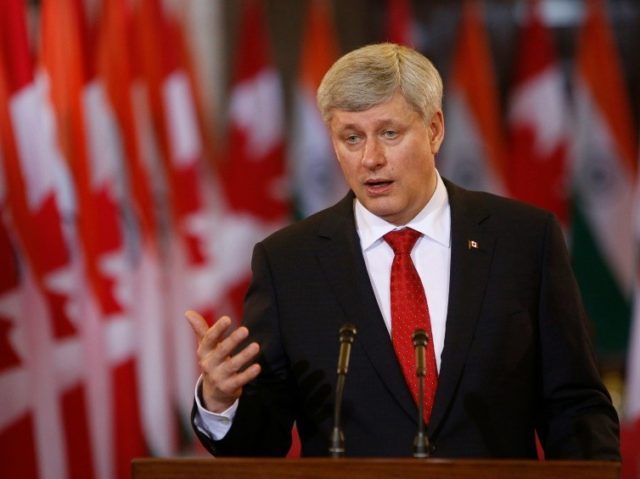Former Prime Minister of Canada Stephen Harper explained why President Donald Trump won the 2016 presidential election by breaking down the real differences between ordinary people and elites.
In a recent video by PragerU, former Canadian Prime Minister Stephen Harper explained that there are basically two different types of people living in our contemporary world: those who “can live anywhere,” and those who “live somewhere.”
“Imagine you work for an international bank, computer company, or consulting firm,” said Harper, “You can wake up in New York, London, or Singapore, and feel at home. Your work is not threatened by import competition or technological dislocation — you’re one of those who can live anywhere.”
The former Prime Minister noted that while there are many elites who can live anywhere, unburdened by outsourcing, cheap labor, or technological imports, there are also a lot of people who live somewhere, and are affected by these disruptions.
“Let’s say you’re a factory worker, small business person, or in retail sales,” said Harper, “If things go badly at your company, or policy choices by politicians turn out to be wrong, you can’t just shift your life to somewhere else.”
Harper stated that it’s easy for the “anywhere” people to dismiss these concerns, but that their faith in global solutions and multinational political bodies is “founded more on fantasy than fact.”
“The fact is the critical functions of laws and regulations, and monetary and fiscal stability, among other things, are provided by nations, not global institutions,” stated Harper, “The ‘global community’ is little more than a concept.”
Due to the “anywhere” people dominating politics of almost every advanced country in the world, the “somewhere” people have been ignored, which Harper says is why populists have been gaining traction, not only in the United States, but across the Western world.
“These populists,” said Harper, “are not the ignorant and misguided ‘deplorables’ depicted in mainstream media, they are our family, friends, and neighbors. The populists represent, by definition, the interests of ordinary people.”
It doesn’t seem, however, that politicians are carrying out the duties that they are meant to carry out, which is to serve the interests of the people, as public servants.
In order to best serve the people, Harper suggests an approach that he calls “populist conservatism,” which is grounded in true conservative values, while speaking to the concerns of ordinary people, not elites.
The former Prime Minister clarifies that addressing these issues does not mean taking a stance against free markets, trade, globalization, and immigration.
“Going in a completely opposite direction in any of these areas is a mistake,” said Harper, “but being pro-market does not mean that all regulations should be dismantled, or that government should never intervene to protect workers.”
“Being pro-trade does not imply that every trade agreement is a good one. Being pro-globalization should not entail abdicating loyalty or responsibility to our country and our local communities. And being pro-immigration should never mean sanctioning illegal immigration, erasing our borders, or ignoring the interests of our citizens.”
Harper states that in the end, “populist conservatism” is really just conservatism, “because it is about serving real people, rather than theories.”
You can follow Alana Mastrangelo on Twitter at @ARmastrangelo and on Instagram.

COMMENTS
Please let us know if you're having issues with commenting.